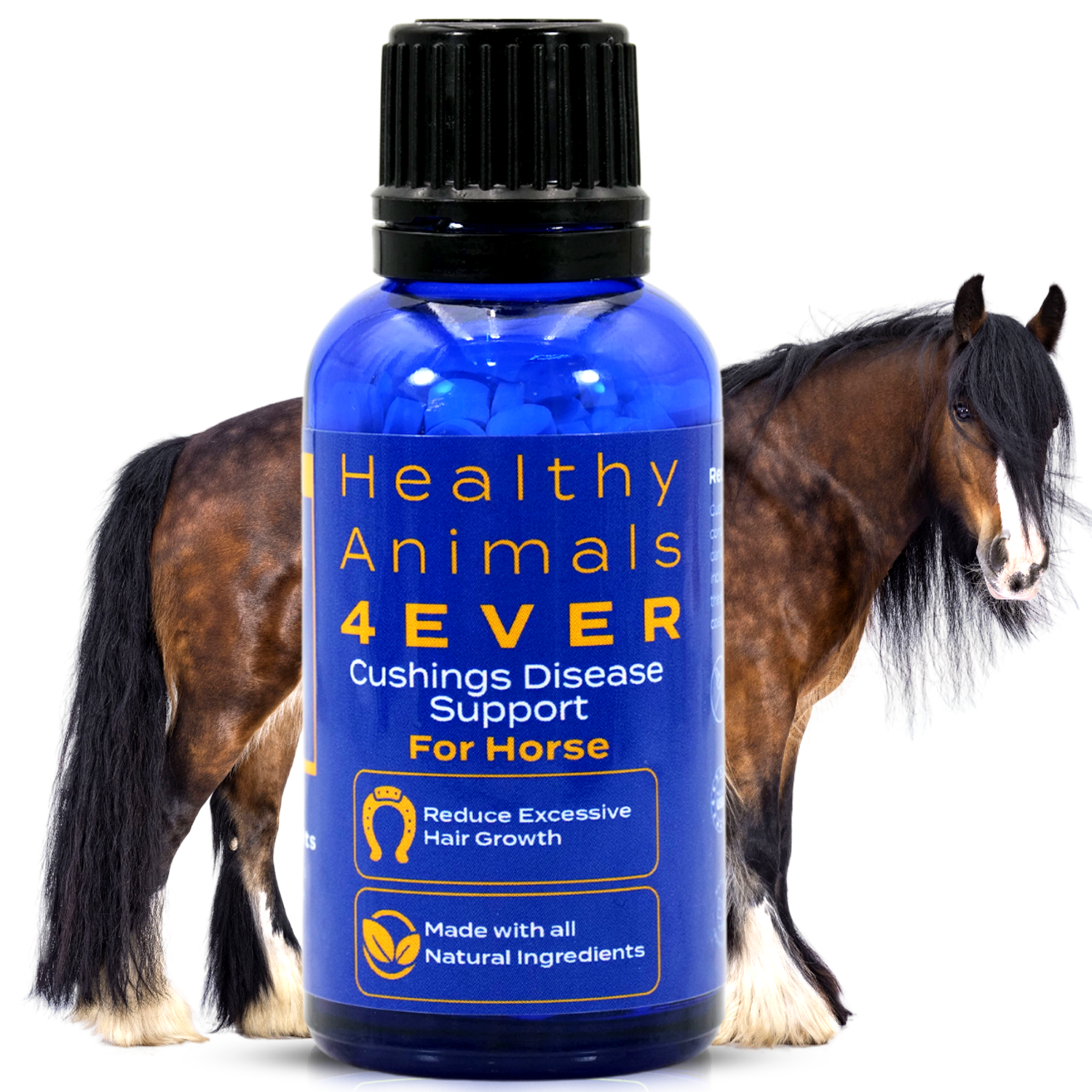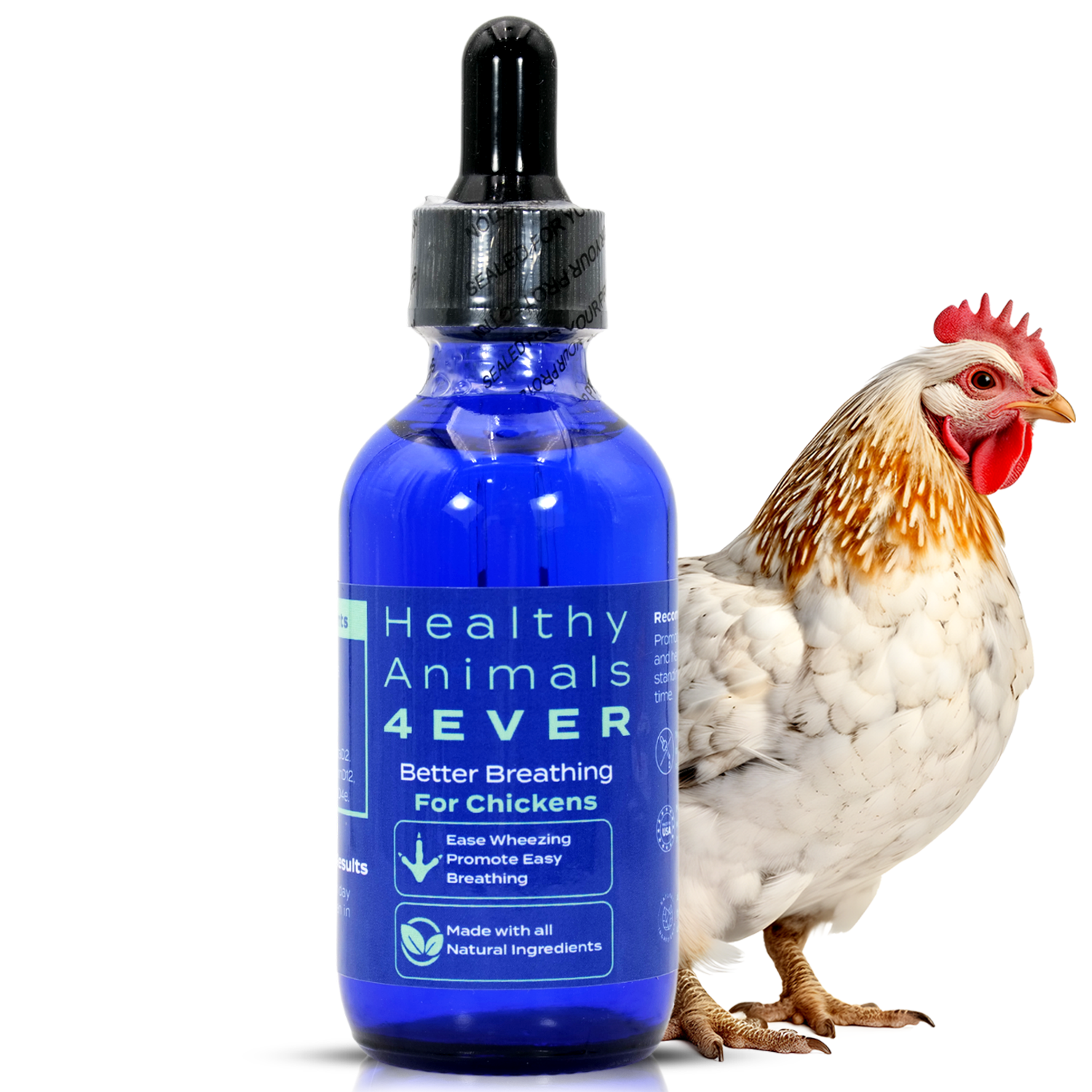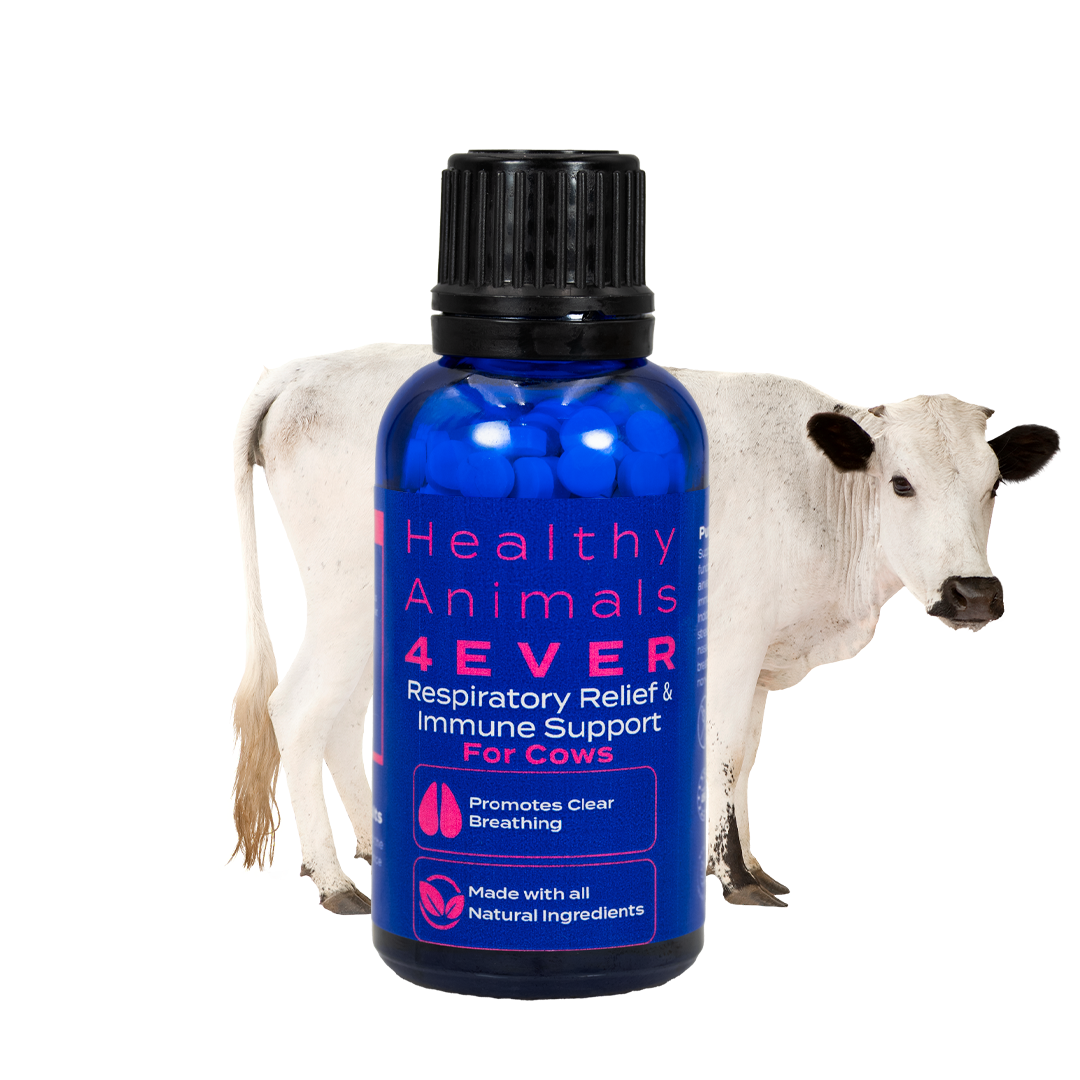Navigating Winter Challenges: A Comprehensive Guide to Common Chicken Ailments and Solutions

In the winter, chicken keepers face unique challenges in maintaining the health and well-being of their feathery friends. The cold temperatures, reduced daylight hours, and changes in environmental conditions can give rise to various health issues among chickens. In this blog, we'll explore some common winter chicken health concerns and offer practical tips to help you safeguard your flock during the chilly months.
1. FrostbiteFrostbite in chickens is a condition that occurs when the skin and underlying tissues freeze due to exposure to extremely cold temperatures. Chickens are particularly susceptible to frostbite on their combs, wattles, and toes, as these areas have less insulation and blood circulation than the rest of their bodies. Frostbite can be a serious concern for chicken keepers during winter, and understanding its causes, symptoms, and prevention is crucial.
Frostbite occurs when chickens are exposed to freezing temperatures for an extended period. The cold causes ice crystals in the cells, leading to tissue damage.
Factors contributing to frostbite in chickens include:
- Freezing weather, especially when accompanied by wind, increases the risk of frostbite.
- Moisture in the air can exacerbate the effects of cold temperatures, making frostbite more likely.
- Inadequate coop ventilation can lead to moisture buildup, creating a damp environment and contributing to frostbite.
CHICKEN INJURY SUPPORT Our remedy is specially made for chickens with injuries. It naturally supports their healing process and helps them get back on their feet.
Identifying the early signs of frostbite is crucial for prompt intervention. Look for the following symptoms in your chickens:
- Affected areas may appear pale, gray, or bluish.
- Swollen and puffy skin is a common sign of frostbite.
- Frostbitten tissues may feel firm or hard to the touch.
- Chickens with frostbite may exhibit signs of pain, reluctance to move, or changes in behavior.
Taking proactive measures to prevent frostbite is vital to keeping your chickens healthy during the winter. Ensure your coop is well-insulated, draft-free, and protected from wind. While insulation is important, it's equally crucial to maintain proper ventilation to prevent moisture buildup.
Before extreme cold sets in, apply a thin layer of petroleum jelly to combs, wattles, and other exposed areas. This creates a protective barrier against the cold.
Use ample bedding in the coop to provide insulation and keep the floor dry. Consider safe heating options for the coop, such as heat lamps or radiant heaters. Ensure these are used with caution to avoid fire hazards.
Stay informed about upcoming weather conditions and take extra precautions during severe cold snaps.
If you suspect frostbite in your chickens, it's crucial to act promptly!
Bring affected chickens into a warmer environment immediately. Gradually warm the affected areas with lukewarm water. Avoid using hot water, as it can cause additional damage. Keep affected chickens in a separate, warm area until they fully recover.
If the condition is severe or if you're unsure about the best course of action, consult with a veterinarian experienced in poultry care.

Cold and damp conditions and poor ventilation can contribute to respiratory infections.
Several factors contribute to respiratory issues in chickens during winter:
- Cold and wet environments stress chickens and make them more susceptible to respiratory infections.
- Cove ventilation may be compromised to keep chickens warm, leading to poor air quality and an increased risk of respiratory problems.
- Reduced outdoor activities during winter may result in chickens spending more time indoors, leading to overcrowding and increased exposure to airborne pathogens.
- Dust and mold particles in bedding or feed can irritate the respiratory system and contribute to respiratory issues.
Keep an eye on your chickens for signs of respiratory issues, including:
- Audible coughing or sneezing can indicate respiratory distress.
- Runny or discolored nasal discharge is a common symptom of respiratory infections.
- Audible breathing difficulties or wheezing may suggest respiratory distress.
- Chickens with respiratory issues may exhibit lethargy or a decrease in activity.
- Swollen facial tissues or puffy eyes may indicate respiratory distress.
Some measures can help prevent respiratory issues in winter. Ensure adequate coop ventilation without creating drafts. Proper airflow helps maintain good air quality.
Keep coop bedding dry to prevent mold growth and reduce environmental dust. Provide clean and unfrozen water regularly to prevent dehydration and support overall health.
Quarantine new additions to the flock to prevent the introduction of potential pathogens. Avoid overcrowding in the coop. Provide enough space for each chicken to minimize stress and the spread of infections.
Use dust-free bedding and feed to minimize airborne particles that can irritate the respiratory system.
CHICKEN RESPIRATORY SUPPORT Our remedy is dedicated to address persistent respiratory issues over time. With the power of consistent use, your chickens may gradually overcome and recover from prolonged respiratory challenges.
If respiratory issues are suspected, separate affected birds to prevent the spread of infection to the rest of the flock. Provide a warm and comfortable environment to help chickens recover. Ensure access to clean and fresh water to prevent dehydration.
If symptoms persist or worsen, seek advice from a veterinarian experienced in poultry care.
3. Mites and liceMites and lice can be persistent pests for chickens, and their presence may be exacerbated during winter. While these parasites can be active throughout the year, winter conditions might create an environment that encourages their proliferation.
Signs of infestation are:
- Chickens may exhibit increased restlessness, excessive preening, or frequent scratching.
- Mites and lice often feed on feathers and skin, leading to feather loss, especially around the vent area, head, and neck.
- Infested areas may appear red, irritated, or inflamed.
- You may see mites or lice on the chicken's skin or feathers in severe cases.
- Severe infestations can lead to stress, impacting egg-laying productivity.
How to prevent infestation?
Conduct routine flock checks to identify signs of mites or lice early. Provide dust baths with diatomaceous earth or wood ash, as these substances can help control external parasites.
Regularly clean and sanitize the coop, nesting boxes, and perches to reduce the likelihood of infestations. Quarantine new additions to the flock before integrating them to prevent the introduction of mites or lice.
If you identify an infestation, isolate affected birds to prevent the spread to others.

Treatment options are:
- Dust affected areas with food-grade diatomaceous earth, a natural and effective method for controlling mites and lice.
- Commercial poultry dust containing permethrin or pyrethrin can be applied directly to chickens to control external parasites.
- Thoroughly clean and disinfect the coop and surrounding areas. Remove and replace bedding.
- Consult a veterinarian for guidance on using ivermectin-based products, which can be effective against external parasites.
- Introduce beneficial insects like predatory mites to the coop, as they can help control mite populations.
Ensure that the coop is well-insulated but still adequately ventilated. Maintaining a dry environment helps discourage mite and lice infestations.
Provide a warm, dry area for dust baths. Chickens may be less inclined to dust bathe in cold weather, so encouraging this behavior can help control parasites. Even in winter, regularly check your flock for signs of infestation.
4. Obesity and inadequate nutritionMaintaining proper nutrition for chickens during the winter is crucial for their health and well-being. Cold temperatures and reduced outdoor activity can impact a chicken's metabolism, making them more susceptible to weight gain. Additionally, inadequate nutrition during this season may lead to deficiencies and health issues. Ensure that your chickens receive a well-balanced diet that meets their nutritional needs.
- Provide a commercial chicken feed appropriate for the age and type of chickens you raise. Choose feeds with balanced protein, carbohydrates, vitamins, and minerals.
- You can supplement their diet with whole grains like corn, barley, or oats for added energy during cold weather.
- Protein is essential for maintaining muscle mass and supporting overall health. Ensure that your chicken feed contains an adequate percentage of protein. If needed, consider offering high-protein treats like mealworms or sunflower seeds.
- Chickens may be less inclined to drink water in freezing temperatures. Ensure that water sources remain unfrozen and provide warm water during extremely cold days. Hydration is crucial for digestion and overall health.
While it's important to provide enough food, avoid overfeeding your chickens. Overweight chickens are more prone to health issues, including fatty liver disease.
CHICKEN NUTRITIONAL DEFICIENCY SUPPLEMENT This product helps support the digestion and absorption systems within the metabolism, making it a perfect solution to fortify their health and vitality.
Even during winter, it's important to encourage some level of physical activity. Provide enough space for chickens to move around and consider scattering their food to stimulate natural foraging behavior.
Regularly assess the body condition of your chickens. Feel their breastbones and assess their overall weight. If you notice excessive fat deposits, it may be a sign of obesity.
Consider providing additional supplements if necessary, especially during extreme cold. This could include vitamins and minerals to compensate for potential deficiencies in the winter diet.
5. Egg production declineWinter egg production decline is a common phenomenon among chickens, primarily attributed to the reduced daylight hours during the colder months. Chickens are photosensitive creatures, meaning their egg-laying cycle is influenced by how much daylight they receive.
The causes of the decline in egg production are:
- As winter approaches, the days become shorter, and chickens receive fewer daylight hours. This triggers a decrease in egg production.
- Chickens have a natural reproductive cycle influenced by seasonal changes. Many breeds are more productive in the spring and summer, slowing down as daylight decreases in the fall and winter.
- Some chickens may go through a molt during the fall or early winter. Molting diverts energy and nutrients from egg production, leading to a decline.
- Extreme cold can stress chickens, diverting energy towards maintaining body temperature rather than egg production.
Provide supplemental lighting in the coop to artificially extend the daylight hours. Using timers to ensure a consistent schedule can help stimulate egg-laying. Use warm-colored bulbs to create a more natural light spectrum when using supplemental lighting.

Ensure that the coop is well-insulated and that chickens are comfortable. Extreme temperature fluctuations can contribute to stress and decreased egg production. Provide supplemental heating in the coop if temperatures drop significantly. This can help reduce cold stress.
Provide a well-balanced diet with adequate nutrients to support overall health and egg production. Consult with a poultry nutritionist if needed.
Minimize disturbances in the coop, avoid overcrowding, and handle chickens gently. Stress can negatively impact egg production. Regularly check for signs of illness or parasites that may affect egg-laying. A healthy flock is more likely to maintain consistent egg production.
If molting is a factor, provide a balanced diet of protein and nutrients to support feather regrowth and overall health.
Collect eggs promptly to prevent hens from going broody. Broodiness can also impact egg production.
Understand that declining winter egg production is a natural part of the chicken's reproductive cycle. Be patient and allow them to rest during this period.
6. StressWinter stress in chickens can result from various factors associated with the colder months. Understanding these stressors and taking proactive measures can help ensure the well-being of your flock during winter.
Chickens can experience stress from exposure to cold temperatures, especially if the coop is not adequately insulated or has drafts. Ensure the coop is well-insulated free from drafts, and provide additional bedding. Consider using heat lamps or radiant heaters if needed.
CHICKEN EGG BOOSTER The absence of essential minerals can ruin eggshell formation. Our Egg Booster contains a powerful formula, ensuring the optimal support required for strong and healthy eggshells.
Chickens are photosensitive, and the decrease in daylight during winter can disrupt their natural behaviors and egg-laying cycles. Use supplemental lighting in the coop to simulate longer daylight hours and maintain a consistent schedule.
Harsh winter conditions may limit chickens' outdoor access, reducing their physical activity and causing stress. Provide a dry and sheltered outdoor area, and encourage chickens to venture outside during milder weather.
Cove ventilation may be compromised to keep chickens warm, leading to poor air quality and respiratory stress. Ensure proper coop ventilation without causing drafts. Regularly clean bedding and coop to maintain a healthy environment.
Cold and snow-covered ground can limit the availability of insects and forage, causing stress. Provide alternative sources of entertainment and nutrition, such as hanging treats or scattering grains for chickens to forage.
Chickens may exhibit changes in behavior due to stress, such as increased aggression or feather-pecking. Monitor for signs of stress and address any behavioral issues promptly. Provide environmental enrichment to keep chickens occupied.

Chickens may isolate themselves in cold weather, leading to stress. Monitor for signs of isolation and ensure chickens have access to warm and sheltered areas where they can huddle together.
Homeopathic remedies as treatment
Homeopathy operates on the principle of "like cures like" and relies on highly diluted substances that, in larger amounts, would produce symptoms similar to those being treated. Here are some homeopathic remedies that are sometimes used for winter chicken issues:
Arnica Montana: For injuries, bruising, or shock caused by environmental stress. Arnica is available in various forms, such as pellets or liquid. Follow the recommended dosage for the specific form.
Aconitum napellus: For sudden onset of respiratory issues, stress, or exposure to cold wind. Administer aconite in a low potency, following recommended guidelines for homeopathic remedies.
Calcarea carbonica: For chickens generally chilly, overweight, or experiencing weakness. Use Calcarea carbonica in a low potency; dosage should align with homeopathic principles.
Nux vomica: For digestive issues or stress-related symptoms, especially if chickens are prone to overeating.
Rhus Toxicodendron: For joint pain or stiffness, which may occur in cold weather.
Arsenicum album: For respiratory issues, especially when chickens exhibit symptoms of coughing, wheezing, or labored breathing.
Allium ceps: For respiratory issues with symptoms resembling a cold, such as watery eyes and nasal discharge.
Belladonna: For sudden onset of fever or inflammation, typical in conditions like respiratory infections.
Silicea: For general support in boosting the immune system and promoting overall health.
It's essential to emphasize that while some chicken keepers believe in the benefits of homeopathy, these remedies should not replace conventional veterinary care. Veterinary consultation is crucial for accurate diagnosis and appropriate treatment, especially in severe cases or when the flock's health is at risk.

The Bottom Line
With its picturesque landscapes, winter also brings unique challenges for those who raise chickens. By being proactive and implementing preventative measures, you can ensure your flock stays healthy and happy throughout the colder months. Regular health checks, proper nutrition, and attention to environmental conditions are key to a thriving chicken community. As you embark on this winter chicken-keeping journey, remember that extra care goes a long way in keeping your feathered companions in optimal health.












